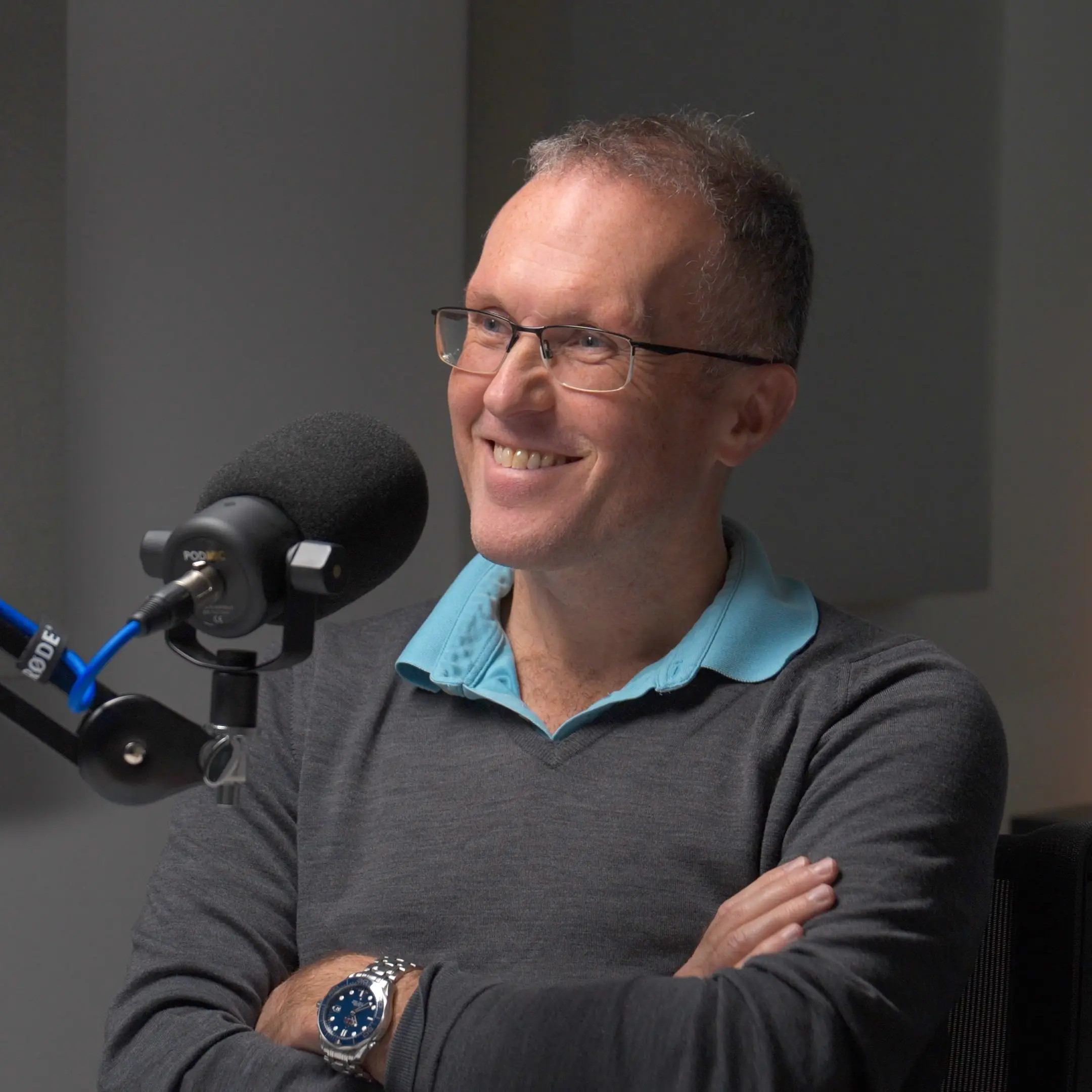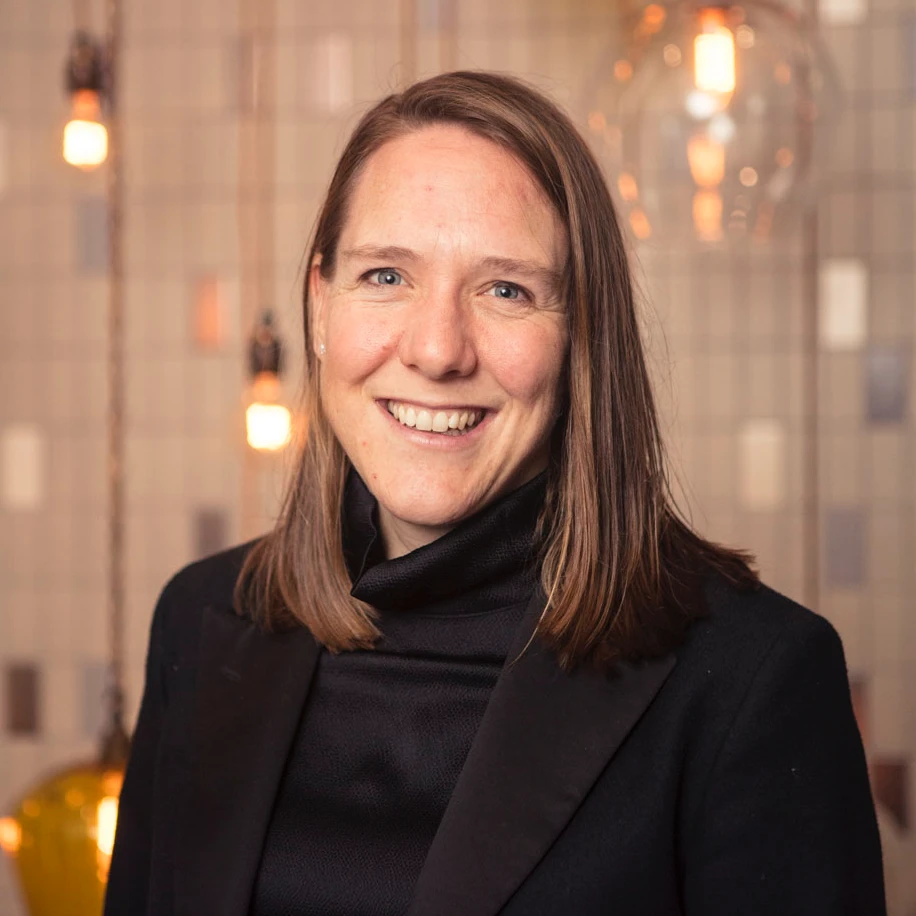Building Oxford’s Future with Anna Strongman
.png)
.png)

In this episode of Oxford+, host Susannah de Jager is joined by Anna Strongman, CEO of Oxford University Development (OUD), to delve into the importance of creating a diverse business base in the city and fostering an environment that attracts a broad range of talents.
Anna Strongman is the CEO of Oxford University Development (OUD), a joint venture between Oxford University and Legal & General, set up to build innovation districts and subsidised accommodation for graduate students and the university workforce.
Anna was previously the managing partner of Argent, where she spent 12 years working on a range of asset development and business planning projects. Highlights from her career include leading the asset management of King's Cross, in particular, Coal Drop Yards and setting up a buy-to-rent portfolio with JV Partners Related. Before working at Argent, Anna worked in the planning and economic development team of Arup and for DTZ in Scotland.
[00:00:00] Susannah de Jager: Welcome to Oxford+ the podcast series that takes you deep into the myths and truths of the Oxford investing landscape. I'm your host, Susannah de Jager, and I've spent over 15 years in UK asset management.
[00:00:18] Susannah de Jager: My guest today is Anna Strongman, CEO of Oxford University Development, OUD, a joint venture between Oxford University and Legal General set up to build innovation districts and subsidised accommodation for graduate students and university workforce. Anna was previously the managing partner of Argent. She spent 12 years at Argent on a range of asset development and business planning projects. Highlights include leading the asset management of King's Cross, in particular Coal Drop Yards and setting up a buy to rent portfolio with JV Partners related. Before working at Argent, Anna worked in the planning and economic development team of Arup and for DTZ in Scotland. I'm so pleased to have Anna joining today because the bricks and mortar side of the equation is something that comes up often in discussions about Oxford.
[00:01:07] Susannah de Jager: Housing, lab space, office space and transport links are all integral to the growth in the region and delicate to balance with other needs. Anna's perspective from within OUD and in discussions with the Council and the University, as well as investment partners, will be exceptionally interesting to hear.
[00:01:26] Susannah de Jager: Anna, thank you so much for joining today.
[00:01:28] Anna Strongman: Delighted to be here.
[00:01:29] Susannah de Jager: Wonderful. So Oxford University Developments is a JV between the university and legal in general and you're working on multiple sites around Oxford. I'd love to know what the other main stakeholders that you're engaging with in the city are.
[00:01:45] Anna Strongman: Oh, that's a very good question because what we're trying to do is multifaceted. We are trying to deliver sustainable, exemplary development which will support the university and its ability to deliver global changing research. We're also trying to deliver sustainable returns for Legal & General and 50 percent of our assets are for the university and 50 percent are market facing and we believe that by delivering high quality development, we can contribute to the wider city benefit. but we also believe that a successful future for the city is critical to the success of our development. So they're very much intertwined and as a result, we've got a real, breadth of stakeholders that we work with. So we work with the local community, which itself is multifaceted and we work with all of our development teams and we work with all of our customers and again, our customers range from the scientists and the academics who are going to be in our new academic buildings and in our new commercial R&D buildings, but also the families, the students, the individual sharers who will be in our residential buildings, and also the community who come and drink in our bars, play in our playgrounds, walk the dog in our new country park. So it's a real breadth of customers, of investors, of key partners, but I must also remember the politicians and the city leaders and the district leaders and the county council leaders because they are obviously critical to our success as well.
[00:03:38] Susannah de Jager: I feel like I just forced you into like an Oscar acceptance speech there where you're and not to forget these people too.
[00:03:44] Anna Strongman: That is true, there's a lot of people involved, but that's a joint development, that's why I love it, because it's got so many different constituent parts and so many different groups to knit together.
[00:03:55] Susannah de Jager: And it must be, as you say, so rewarding to be engaging and quite frankly intellectually stimulating and obviously your background speaks to, you came up through that sort of, you know, kind of the social and the kind of the community and the you know, that planning, kind of how you integrate is a huge part of your background, but it must be really complicated on a day to day.
[00:04:18] Susannah de Jager: You're dealing with a whole city of opinions and one of the things that I've heard, especially about Oxford and I'd be really interested to get your view on this, is that because it's got a lot of councils in the city centre, it's especially complex and you've got, I think it's seven development sites at the moment, are they all in completely different wards?
[00:04:43] Anna Strongman: It's a good question. How does the government structure influence our approach to planning and development? In Oxford, there's a city council surrounded by five districts, and then there's a county council which sits on top and that does mean that you have to work with different local planning authorities, depending where your project is. So we work with the city council and with Cherwell district council, those are the local planning authorities for our projects. But we also have an interaction with the county council and there is also an impact from those councils working together on their different areas because that influences wider planning policy and there's a lot of people say, well, Cambridge has got a more simple structure, so does that enable them to move more quickly? And I think it no doubt has an influence, I don't think it is the only influence on different trajectories, but it does make taking forward development more complex, I would say, in Oxford. I think in Oxford there are different constituencies within the local community as well, where people have very different views of what Oxford should be and could be and that is more pronounced than other places that I have worked and I think those views, those worldviews on the future have to be respected. But our role is to try and navigate those to create a vision, which can bring a broad range of views behind. Not easy, but that's what we're trying to do, to build broader support for what we're trying to do and to deliver those broader benefits for the city. I would say having different views about the future influences the politicians, obviously on the doorstep and that can come back to us through the planning process. So there are lots of different influences, I would say, on the political structure, the government structure and the views on the doorstep in terms of what we do.
[00:06:54] Susannah de Jager: You brought up one of the points that I was going to ask you about there which, well, several, but Cambridge and Oxford and the perception that is definitely out there and actually Irene Tracey brought it up the other day, that it is easier to navigate planning both the systems, but also just geographically, that Cambridge is less constrained by, you know, we've got two whopping rivers either side of our city and you said that you don't quite think that's true, but what are the other factors therefore that you think maybe are contributing to that?
[00:07:27] Anna Strongman: I mean, I definitely think the local authority structure has had an influence and it has enabled the city to act and drive forward development within the city. I definitely think the geography, as you pointed out, you know, land is really constrained within Oxford in a way that it's not constrained in the same way in Cambridge. I think the university embraced the commercial opportunities of its research before Oxford did, so the Cambridge Science Park was set up in the 1970s. That's not to say that people haven't been entrepreneurial in Oxford, they definitely have and there are lots of amazing success stories within the city. I think there's just been more of a collective approach to embracing them between the city, the university and the business community and the development community and as a result of that, when the government now is looking towards where can it promote growth, where are the opportunities, then Cambridge is a more obvious answer than Oxford and that's why there is a lot of focus, there has been a report issued recently called the Case for Growth in Cambridge and there's discussions about setting up a development corporation there to enable growth, there's been a government commitment to building more houses. That has caused its own kind of response and not all popular within the city. But I think it's seen as a place where growth can happen, where opportunities can be realised and as a result has become a focus in a way that Oxford doesn't have such a clear positioning with central government and other stakeholders.
[00:09:11] Susannah de Jager: Really, interesting and in spite of all of this, though, there are so many positive things going on around Oxford and I think it's really interesting that even within these constraints, there are some amazing developments going on. So we've obviously got the projects that you're overseeing, which I will come on to, I'd love to hear more about. But we've also got these amazing science parks around not just Begbroke, the other ones, as we'll call them for the purposes of this conversation, but also the Ellison Institute of Technology that's coming here and so there is this appetite to grow here and I suppose with that in mind, if you were advising, which I'm sure you do, but top government, are there changes to the local infrastructure that you think could make these things smoother, make the lines of communication in that much better, and improve it even further?
[00:10:05] Anna Strongman: Yeah, I absolutely believe that Oxford has enormous potential and it has enormous potential to grow in positive ways, so ways which have a positive impact on GVA and GDP and growth and jobs, but also it can grow in a way which has positive impacts locally and can support a thriving town centre, can support jobs for local people, can create investment in infrastructure, but to really unlock that, we have got to make the case locally and we've got to make the case nationally, and we actually also have to make the case globally. So we have to speak globally about the great potential of the city and encourage businesses and other institutions to come and locate here and we have to talk nationally to unlock funding in our utilities infrastructure and in our transport infrastructure. So we need more investment in power and we need more investment in flooding control and in the water systems and we need more investment in transport and sustainable transport to really enable the potential growth to be unlocked without a detrimental impact on the city. We also need to talk about the infrastructure to support local peoples and ensure that the jobs within these new developments are accessible to a wide range of people, in fact, their success requires that as well and we need to invest in a better Broad educational infrastructure to ensure that everyone can see the benefits and understand why these developments are so important. So I think infrastructure and making the case for that investment is at every level and only then can we really achieve our potential.
[00:11:58] Susannah de Jager: I think you make a really interesting point in there, which is, as you and I know and many people are aware of, there's a huge amount of disparity in educational outcomes and even life expectancy is shocking across Oxford, I think there's a 12 year difference in average life expectancy from Blackbird Lees to the north of the city, so it's one of the most unequal cities in the country, is my understanding actually and I think when we talk about differing views on what good looks like for the city, if you're dealing with that cohort of people whose outcomes are so dislocated from the university, it can just feel very abstract and if we can therefore help to push those things together where the outcomes for all groups are enhanced, that clearly, A is better for everyone, but B makes the case and to your point, will bring those stakeholders hopefully behind all the plans. What are some of the initiatives, because I've heard you speak about them before and I've seen some of it, what are some of the initiatives that you're focusing on? Because it's not just the bricks and mortar, it is, as you say, the educational piece that you are initiating as Oxford University Developments to try and bridge that gap.
[00:13:11] Anna Strongman: Yeah, that is a good question, that's key to what we're trying to do. It's not easy and we can't promise to address every challenge in the city, but what we can promise to do is to have an approach which is open to delivering the change in partnership with people like the local authority and we can do that through the mechanism of development. So it's important for us to focus on what we can actually do and what we can influence and I think we can deliver, again, on a number of levels. So we are building fantastic public realm and my experience at King's Cross showed that actually public realm, accessible, welcoming of high quality, can actually bring different people together and help to build social capital, which is a first step to really contributing to the wider benefit through the development and we are also building, well, we will be building physical facilities, effectively the hardware of these developments and by that I mean we're going to build three new schools up at Begbroke and we can build them in a way which again signifies investment in local people's lives through the quality that we would deliver but also ensuring that we promote partnerships with occupiers and the schools. So again at King's Cross we built an academy, their primary school, where the developer is actually a partner in the academy and we ensure that our wider occupiers, everyone from Nike, to Havas, to the University of the Arts actively delivered activities, events and opportunities through the primary schools, so I think the schools offer a great opportunity and then I think also it's about opening up employment and skills opportunities. Again, it's not straightforward, it requires a lot of effort and a lot of partnership working. But again, at King's Cross, we built a jobs brokerage in partnership with the local authority and ensured that there were opportunities available within our major corporate occupiers for local people to access and really supported them to do that. So, I think there are opportunities in the hardware, the physical things that we will build, but also in the software in terms of the programs and the partnerships that we can promote. Again, we are not omnipresent. We can act within our own sphere and partnership is critical, but I think the first step is being open minded to entering into the partnership and actually taking action, however small that might be and exploring what works, what doesn't work and if I can just give you an example, last year we heard from the local people at Begbroke about the science park, asked what actually happens there, we don't really know what happens in the buildings, we'd just like to hear a bit more. So we said okay, in partnership with the Begbroke Science Park,x we ran a garden party. We thought 300 people would come, 1,500 people came because there was a real appetite to understand the research. Also, you know, to have a barbecue and sit in a lovely walled garden. But there was an appetite to know and understand and in fact, what I find so interesting is the local community, they have connections with the university and with some of the scientists and academics themselves. So who is... it's not always us and them because actually there can be one in the same and we really saw that at the garden party.
[00:16:45] Susannah de Jager: That's so encouraging to hear, and on a personal level, I find that even being proximate to Oxford as somebody that's not integrated in the university myself and I didn't, it's not my alma mater, it's so inspiring when you do speak to these people who are curing cancer or are innovating, you know, things like Nanopore or First Light Fusion and you go, gosh, wow, if that works, the impact that will have is so incredible and yet, even when it's a mile down the road, you can be completely unaware and there is this stuff of the walls can feel quite high when you're outside of it and I really love that so much of what you are focused on in these developments is making it feel more open and that, as you say, the public realm and the social value, so I find that really encouraging.
[00:17:36] Susannah de Jager: I wanted to ask you specifically, I'd love to hear a bit more about the seven sites that the university is developing and what stage they're at, what they're going to deliver and maybe a bit around the timeframes.
[00:17:48] Anna Strongman: Yeah, so we, what is fascinating to me about this portfolio is that it is a range of different types of buildings, different types of assets. So we're working with the university to build their academic buildings, Life and Mind is one example of that. We are building housing, so we're building housing for university staff, for graduate students and we're also building market housing or plots for market housing, which we will use the sale of to support our infrastructure investment, we are building commercial R&D space and we're building a lot of infrastructure to bring these different types of assets together in high quality developments. Our sites are very varied, which again is a really interesting element of the portfolio. So we're building anything from 70 graduate family homes in Iffley up to Begbroke which is over 400 acres of land where we'll be building 2,000 homes, three new schools, a new country park and we will be supporting the expansion of the science park, which already exists at Begbroke, in really a new Innovation Village is how we like to think of it. So they've really got a broad range of scale and type of building. We're also building Osney Mead, where we are hoping to support the development of a renewed district. Very conscious of some of the constraints on that site, so we're spending a lot of time ensuring that we understand the flooding position, that we understand the power supply position, there are pylons on the site and working in partners with others on that site to bring it forward. That's a very long term project, but it's 10 minutes walk from the station, so it's a hugely sustainable location where we can ensure that the growth is managed effectively and has that broader contribution. We are also looking to bring forward some more academic buildings in the city centre, for example at Wellington Square and there's also a site up in Summertown, a very sensitive site, around Diamond Place, which again, we are working with the local neighbourhood forum to spend some time understanding the requirements of a potential master plan, so we can be very thoughtful in how we take that site forward. So real breadth, real range and a real difference in timescales. So effectively, I see it as a phase one. So, Life and Mind, due to be completed in the next year or so. Begbroke, we've completed two lab enabled buildings up there. We finished that in February and our houses in Iffley, we plan to complete in the summer. So proof of concept, projects coming forward, contributing to the city and then we've got our next phase, which is bringing forward Begbroke, exploring sites such as Wellington Square, and then thinking very hard about how we can bring forward Osney Mead, in a very sensitive way, which responds to the constraints on the site. so real mixed bag, would just say, delivering to very high qualities of sustainable performance. our shareholders are both very committed. They have slightly different angles in their approach to sustainability, but both very committed. So, hugely ambitious targets, we might not make them all, but we'd rather be ambitious and not make it than be mediocre and surpass everything. So really trying to push that agenda as well through the developments.
[00:21:31] Susannah de Jager: Wow, that's a lot and to be honest, more varied than I might've expected you to say, because some of those are more visible at the moment than others. So, you're speaking about lab space there in Begbroke and I have heard you say before that we need to have this follow on space for companies to grow here because otherwise they have to move and they might not just move locally, they may move internationally as we know. Clearly, some of that is space constraints, but have you spoken to those stakeholders and those businesses, because I have also heard people say that some of that is to do with investors pushing them to perhaps go to America, list on the NASDAQ and other forces, so do you have a sense that people would have stayed if they could have?
[00:22:24] Anna Strongman: Yeah, I think it's a good question because I don't think everyone's locational decision is just about space. I think there are a whole range of different reasons from funding, access to talent, access to grants and subsidies, particularly on the manufacturing side, for example and I think those forces will continue. I think the key thing for Oxford though is to ensure that we have the right types of spaces to put ourselves in the best position to seize the opportunities when they do arise and also to ensure that the wider context is attractive to those businesses and by that I mean they can attract talent by staying in Oxford, they can retain their relationships, they can access all the things we've talked about, like space, power, transport is easy. I think we can't just rest on our laurels in the sense that we rely on a homegrown supply of businesses to aid for the real estate but also more importantly create the ecosystem. I think the Ellison Institute's move to Oxford is very exciting and I think the more global businesses and institutions who look to base themselves in Oxford, the better for that ecosystem and for the competition as well to some degree. So I think it's a very interesting point in time for Oxford. I think we've got to make sure we can capitalise and retain as much of that homegrown pipeline as possible and support those business leaders and those scientists and those innovators as much as possible. But we also need to shout loudly on the global stage about all of the fantastic attributes that Oxford has, which are one of the same of what keeps the local talent here, so that we can pull in people from across the world to be part of that ecosystem and that's really what we're trying to do through our developments, thinking very much about the type of real estate thinking very much about the partnerships with the businesses and with the researchers, but also creating that wider infrastructure, which is why high quality housing, high quality schools, pubs, bars, cafes, music venues are all part of creating a place where people want to be part of, which is a fun city to live in, as well as a very productive city. So yes, I think there are other forces, but it's almost trying to position ourselves in the best possible light to realise the opportunities which do arise.
[00:25:12] Susannah de Jager: You obviously spoke earlier about 50 percent of I think it was Begbroke, but forgive me if it was broader than that but being market facing and 50 percent being Oxford University as kind of tenants, when you're looking at that 50 percent that's market facing, as with I imagine, how you did at King's Cross, you know, how are you trying to curate that to optimise on those forces that you're talking about? Are you looking for sort of big anchor tenants that will bring that sort of, oh good, they're there, so that's really great for brand, as it were.
[00:25:44] Anna Strongman: Yeah, so it is a really good question and we're exploring what that long term vision can be and can't be at the moment because development takes quite a long time, getting planning permission takes quite a long time and we can't look forward to 15 years time and say this is the perfect curated mix of tenants to create the most productive ecosystem at Begbroke. What we can do is say there are opportunities which will arise and they might be opportunities which involve major anchor tenants in the form of businesses or institutions, or they might involve an anchor which is a collection of like minded tenants in a spec building, or there might be a new academic department where there is a specific requirement around space, or it might be very flexible space in the form of some more mid tech product which you see at Harwell or up at the tech park and it's very hard to sit here today and say well this is what we must build every day, you know for the next 15 years to get to that end position. So as developers, we have to have a flexible mindset to be able to go out and seek those opportunities and respond as they materialise and I think what is quite interesting about this sector in particular is that we have to work with partners here, we have to work with the university and respond to their requirements and the requirements of their academics and we also have to respond to business leaders and chief scientists in those businesses to respond to what they want to do and that does involve thinking about who the tenants are, what their science is and we're mere builders, so we have to work in partnership to explore that and I would say we're right at the start of that journey, so at the moment we're very focused on getting planning permission and ensuring flexible master plans, ensuring high quality master plans and making sure that our shareholders, the university and Legal & General are happy and feel confident about the future. But we are thinking more and more about how we can develop that broader narrative and that broader criteria for curation, but in a way which provides flexibility to respond as the science and the future changes.
[00:28:20] Susannah de Jager: I mean, I feel like maybe I'm being almost a bit unfair because I'm asking you all these questions that are sort of related to, but not necessarily directly in your wheelhouse.
[00:28:29] Anna Strongman: No, that's
[00:28:29] Susannah de Jager: Because you're sort of a, almost like a linchpin for so much of how it will evolve. So, you touch all these areas, but as you have drawn out, you're sort of subject to them as much as you're interacting with them, so it's really interesting to hear your perspective on it. With the kind of the development of space as it is so constrained, I was hearing the other day that the Clarendon Centre is going to be redeveloped into lab space, which is obviously, for those that don't know Oxford very well, a shopping centre right in the centre of town. I don't believe that's one of your sites, but how does the approach differ to those sort of brownfield sites versus the greenfield within the council and how much opportunity is that? Because as a lay person looking around Oxford, there are quite a few sites that feel ripe for redeveloping, round the station in particular, there's a number, you've obviously spoken about Osney Mead. Is that a different trajectory to... I'd love to learn more from you.
[00:29:30] Anna Strongman: Yeah, I think, again, it is a good question. I think it's fantastic that sites are being brought forward in the city centre. I think they're a critical part of rejuvenating the city centre, which I do think can feel run down in places and that's partly because I think the city is suffering from broader trends, you know, the structural change in retail provision, for example and it's a city which has to grapple with a lot of forces, tourism, changes in retail, the role of the university physically in the city centre. So I think bringing forward new developments which can contribute to the science fantastic. I also think bringing those developments forward in sustainable locations, again, really important. I believe in a virtuous circle, I think the more successful the other developments are in Oxford, the more we will all be successful and actually, we will all play our, own unique part parts in that ecosystem. I imagine, I'm not close to the developments in the Clarendon Center, but I imagine they're for fully fitted out labs where they're looking for high concentrations of scientists and researchers in a quite constrained location, that is different from some of the other developments which are on the outside of Oxford, where there's more space and the buildings are probably less intensively developed and they both have parts to play in the structure and I really hope that the Clarendon Centre and other city centred developments are successful because that again sends a signal to the market and it sends a signal that Oxford is a fantastic place to come and stay or build a business from that side.
[00:31:21] Susannah de Jager: Thank you.
[00:31:22] Susannah de Jager: So, I'd really love to know, looking forward for the next five to ten years, as all of these things unfold, if you were to have a wish list of three things that you were allowed to, either incrementally or really kind of root and branch change in Oxford, what do you think, from a development perspective, the top three things you could wish for might be?
[00:31:43] Anna Strongman: I fundamentally believe that investing in infrastructure will have a positive impact on the business community, the development community, and everyone in the city. So I would like to see Cowley Branch Line delivered, I would like to see East West Rail happen, I would like to see incremental improvements in the active transport network and the bus network in the city. I would like to see the power and other utilities and the water management structures and systems sorted out in the city and I would like to see more housing brought forward in a sensitive and sympathetic way and I think those are all really the platform to enable the city to achieve its potential and then other forces will come in and make things happen, but infrastructure is a common good, it's a public good and it does need a concerted system led approach to sorting it out and we are happy to be part of that, but it does need everyone to come together and deliver it and I think that would be really transformational for the city. I would like to see the city having a much broader mixed business base. I think Oxford has the highest proportion of public to private sector workers in the country, which is absolutely no bad thing and it shows the quality of the NHS focus here and the educational focus and all the great things the other public sector institutions do. But I do think if we had more businesses, not necessarily science businesses, or tech businesses, or services businesses in the city, I think that mixed economy again would offer broader opportunity, broader investment in the city fabric and create different voices in the city, which I think would be a positive thing.
[00:33:39] Susannah de Jager: That's really interesting. I didn't know that, in terms of the mix, but as you say, it resonates and I can really agree with you as to how that might change some of the discourse, because one often hears and I don't think it's always a fair characterisation, but that, you know, academics and I guess you could say the same of people that have been within the NHS, it's just a different mindset with a different set of factors. So that's really, interesting to hear. Is there anything I haven't covered that you particularly think we should go on to?
[00:34:10] Anna Strongman: I think perhaps something which I'm sort of known a little bit for in Oxford is, I do think we've got to bring a bit of fun back to the city. I think Oxford can take itself very seriously and can be very earnest and if we want to retain top talent in the city and attract top talent, and by talent, by the way, I don't mean it's just everyone who's got a PhD, I mean a broad breadth of individuals who bring something different to the table. People can excel across a range of different skills, particularly in the modern economy, but I sometimes think that we could have a little bit more fun in Oxford and that would help again create this vibrancy and the liveliness and inclusiveness, which I think is critical to its future.
[00:34:56] Susannah de Jager: It's such an interesting point you make, and I came to Oxford as somebody with most of my background was in financial services and you've already struck upon it. There are fewer private sector businesses that sit outside of perhaps maybe the pure academic, the science, the university and as a layperson, it can be quite intimidating, like, oh well that's not for me and I say that as somebody that comes from quite a kind of qualified background in my own realm but completely dislocated from a lot of the value that's here. So that really resonates with me insofar as I think that there's lots of talent in the city that perhaps isn't feeling integrated into the whole and hopefully that could have a really positive impact because some of these jobs are really highly skilled, very specific, require particular educational backgrounds and I like that idea of diversifying that out to be more inclusive to a wider group of people that live here, that grow up here, that get educated here.
[00:35:50] Anna Strongman: Well, I think also some of the interesting things which are happening on innovation are happening where different ideas come together, different disciplines come together, you know, there is innovation happening in the humanities, which isn't really talked about so much, but innovation around humanities, around tech, as well as around life sciences and around material science and to spread the benefits of innovation, often you have to commercialise and again, that requires different types of skills, different types of people, and ensuring that you can attract, fantastic business leaders, fantastic HR leaders, fantastic accountants. A lot of the academics I've talked to are interested in commercialising their research because they can see it's how they can deliver impact and to deliver that impact and to address some of these broader global issues, we're going to need a whole with a whole range of different skills and talents to really make that happen. So I really do think we've got to make sure we attract that range to the city and to being part of it.
[00:37:06] Susannah de Jager: I think that's a really nice note to round out on is people that are listening and you know, this podcast is there to educate both people inside Oxford and hopefully people that might come here to invest and I think that it can often seem relatively linear in the focus and what you're saying is actually, A, it is already broader, and B, it would benefit from being even broader than it already is, and that it shouldn't just be thought of as a sort of one trick pony with, as you say, life sciences, material sciences.
[00:37:37] Susannah de Jager: Anna, thank you so much, this has been really interesting, and as I say, thank you for tolerating me asking for all your opinions on areas that I know you don't have the power to necessarily affect, you've been very generous.
[00:37:49] Anna Strongman: That's what successful developers do and sometimes they achieve it, but let's hope we get a little bit of the way there at least.
[00:37:55] Susannah de Jager: No, well, I think what you're doing is excellent, so thank you.
[00:37:59] Susannah de Jager: Thanks for listening to this episode of Oxford+, presented by me, Susannah de Jager. If you want to stay up to date with all things Oxford+, please visit our website, OxfordPlus. co. uk, and sign up to our newsletter so you never miss an update.
[00:38:12] Susannah de Jager: Oxford+ was made in partnership with Mishcon de Reya and is produced and edited by Story Ninety Four.


More episodes+

The Multiplier Effect: Funding Companies, Ecosystems, and the Future of the UK
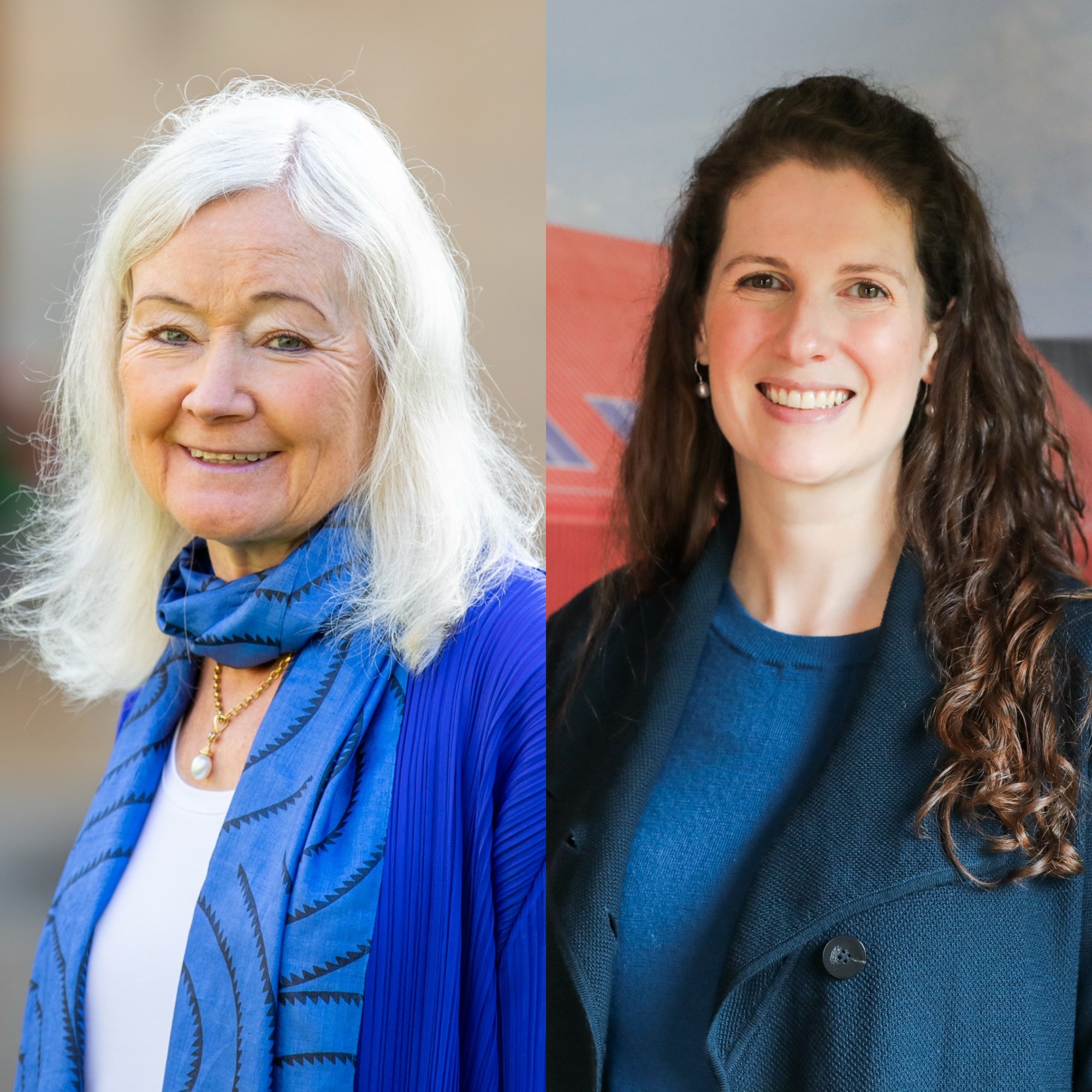
Oxford North: The New Innovation District in Oxford
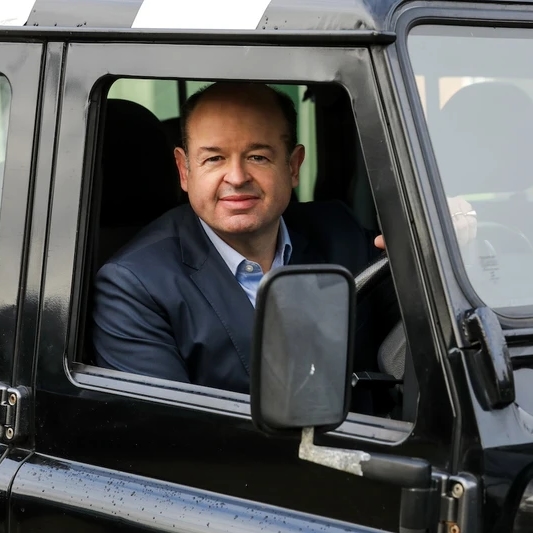
The Cluster Effect: How Bicester Motion is Driving the Future of Mobility
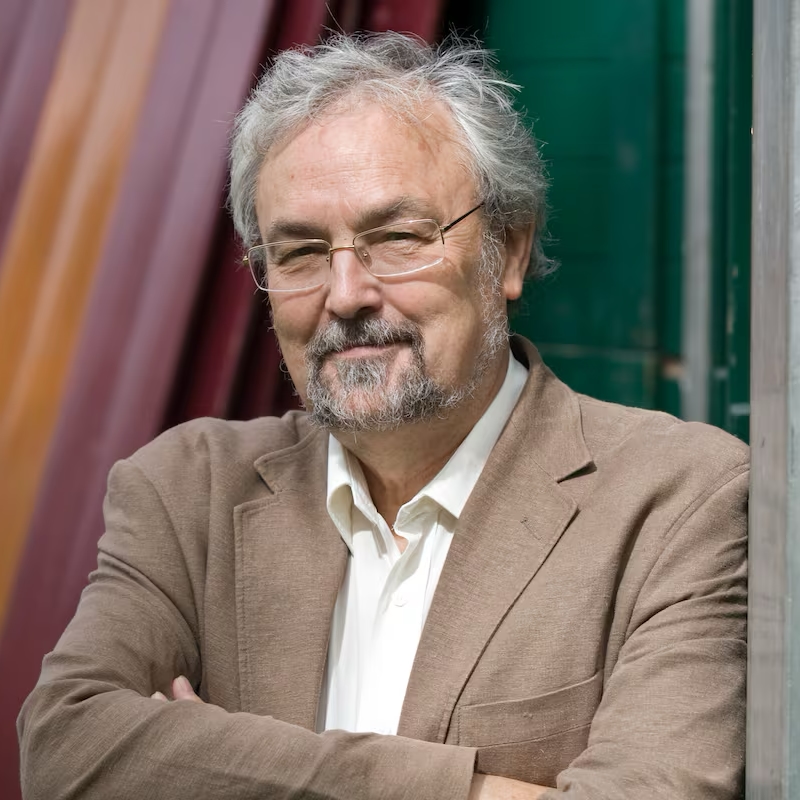
The Psychology of Scaling Companies and Teams with Professor Robin Dunbar: Part 3

The Psychology of Scaling Companies and Teams with Professor Robin Dunbar: Part 2

The Psychology of Scaling Companies and Teams with Professor Robin Dunbar: Part 1

The Future of Genetic Medicine with Zandy Forbes, CEO of MeiraGTx
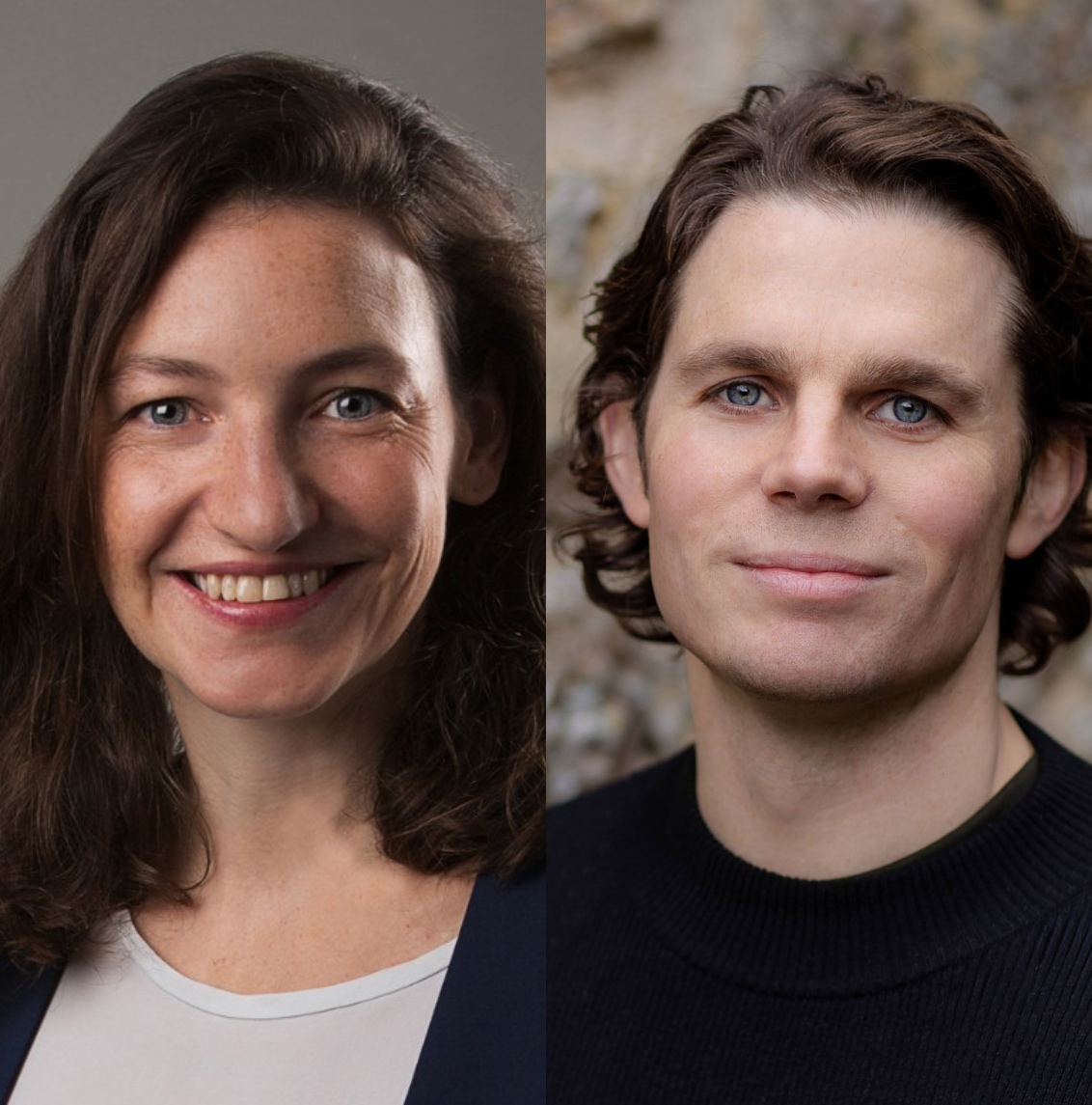
How Founders Pledge Uses Data to Maximise Philanthropic Impact

The Oxford Trust at 40: How Innovation and Education Power Oxford's Future

Can Sirona Rival Ozempic? A New Chapter in Obesity Treatment with Camilla Easter

Aligning Founders and Investors with David Mott

Building Billion-Pound Outcomes with Jack Edmondson

How Machine Learning in Oxford Is Transforming Medicine Worldwide with Lionel Tarassenko

Bringing Science to Society with Molly Stevens

How Oxford University Innovation Bridges Science and Business with Mairi Gibbs
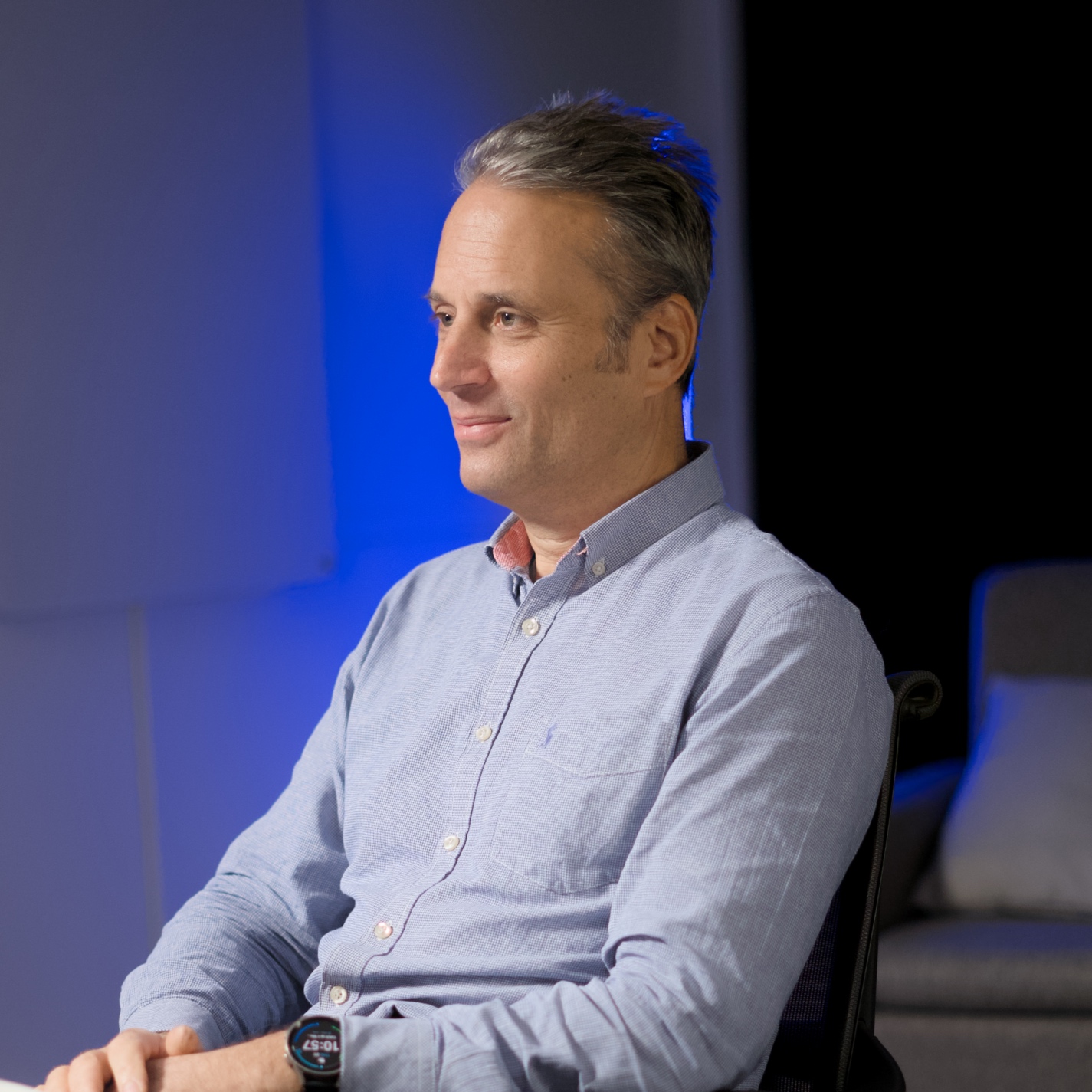
What Formula One Teaches Us About Startups and Success with Adam Parr

Risk and Reward in Early-Stage Tech Investments with George Robinson

Charting Fresh Career Paths with Sue Douglas

From Oxford MBA to Startup CEO with Lily Elsner

Navigating Market Dynamics with Marcus Stuttard

Harnessing Local and Global Talent with Sarah Haywood

Navigating Capital Markets with John Derrick

Breaking the Myths Around University Spin Outs with Irene Tracey

Navigating the Future of Oxford Sciences Enterprises with Ed Bussey

Oxford's Role in the Next Industrial Revolution with Dave Norwood

Diversifying the Investment Ecosystem with Rowan Gardner

Pension Investment and the Mansion House Compact with Nicholas Lyons

Lessons from the Motorsports Cluster with Mark Preston

From Research to Reality with Cici Muldoon

Nurturing Founder-Driven Ventures in Oxford with Peter Crane
